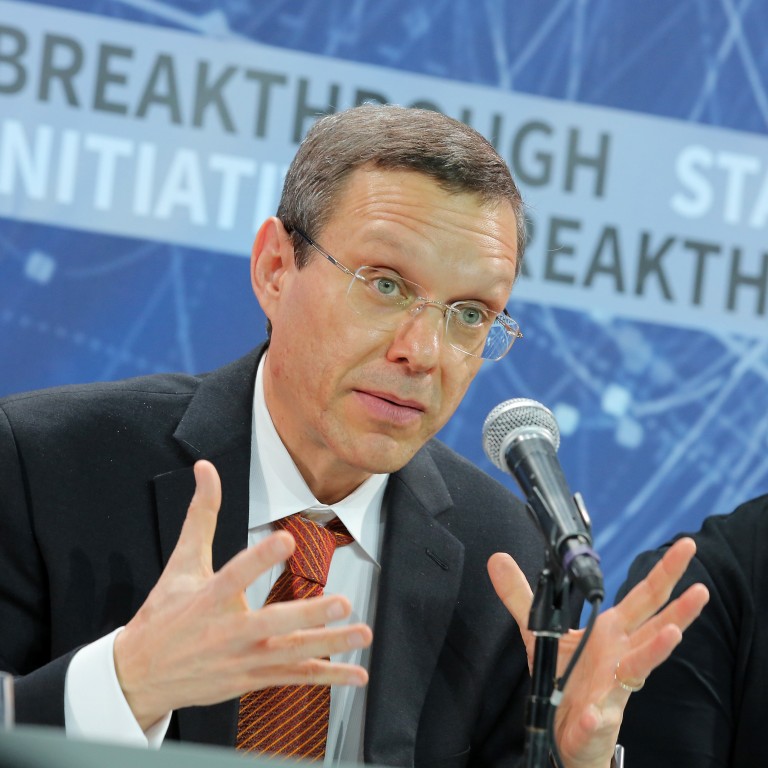
Harvard astrophysicist and astronomer Avi Loeb on the search for alien life, his critics, jealousy-driven science, and comparing him to Galileo
- Avi Loeb, a Harvard astrophysicist and astronomer, who is sometimes criticised for his glib style and presentation, talks about the search for aliens
- His research project, named after the astronomer Galileo, was set up to use scientific methods to locate and analyse unidentified objects
Avi Loeb leans in, grabs my hand and says: “Be as critical as you like.”
What, after all, was one more critic?
He resembles a caricature of a scientist, his body wiry and short in a plaid tailored suit, holding an expression that suggests both the severely etched Oppenheimer and the anxious, chain-smoking lawyer Martin Short played years ago on Saturday Night Live.
Certainly that’s the image many of his peers seem to hold of Loeb: one part austerity meets one part sketchy. He is a theoretical astrophysicist. He teaches astronomy at Harvard University and chaired the department for nine years. He is also the director of the Institute for Theory and Computation, the founding director of Harvard’s Black Hole Initiative and former chair of the US National Academies’ Board on Physics and Astronomy.
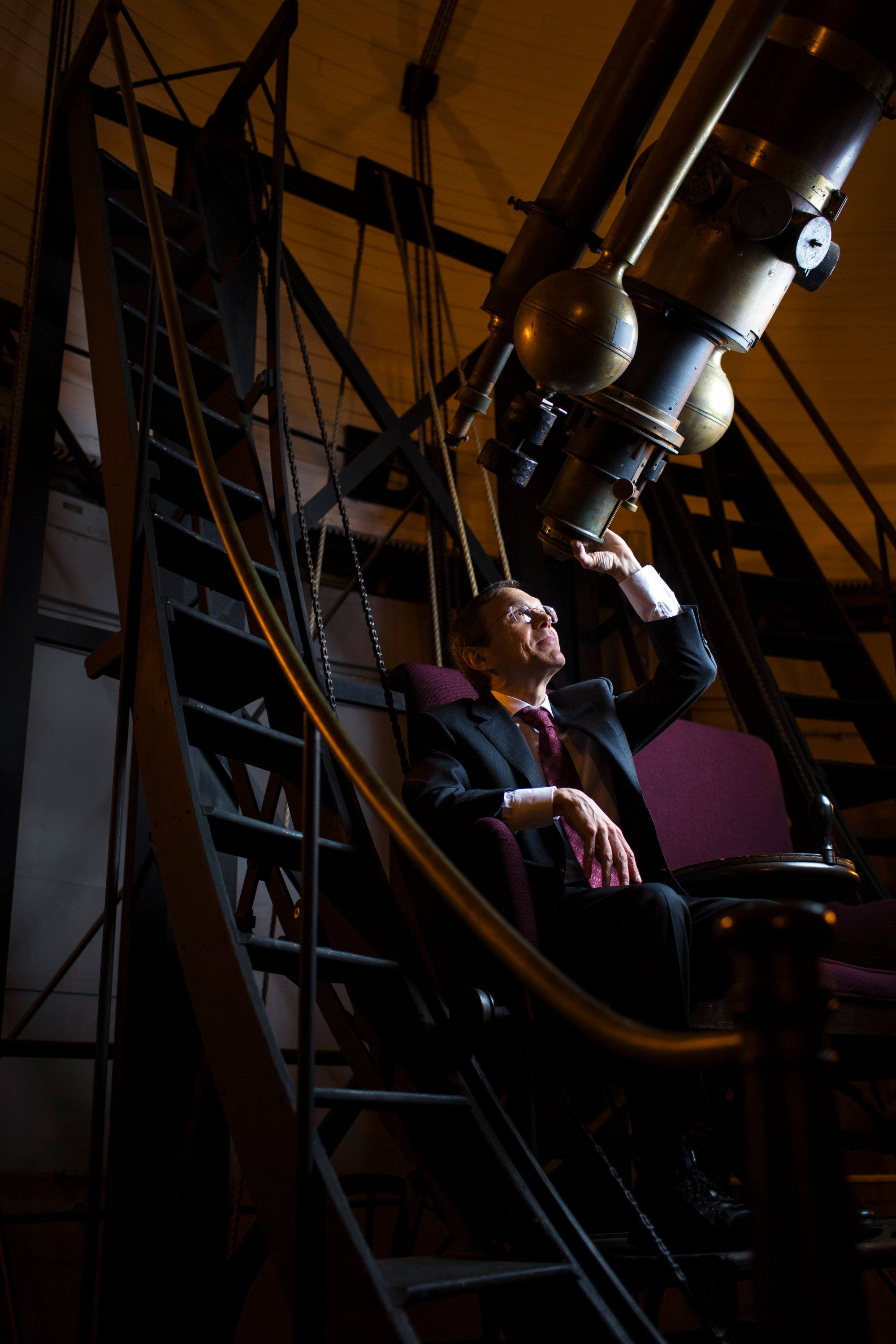
For decades, he’s been known as a prolific voice on dark matter, black holes, the formation of stars.
“Avi is doing incredibly important work as one of our most important figures in the contemporary search for extraterrestrial intelligence,” says Garrett Graff, a long-time journalist on national security and Pulitzer Prize finalist, whose latest book is UFO: The Inside Story of the US Government’s Search for Alien Life Here – and Out There.
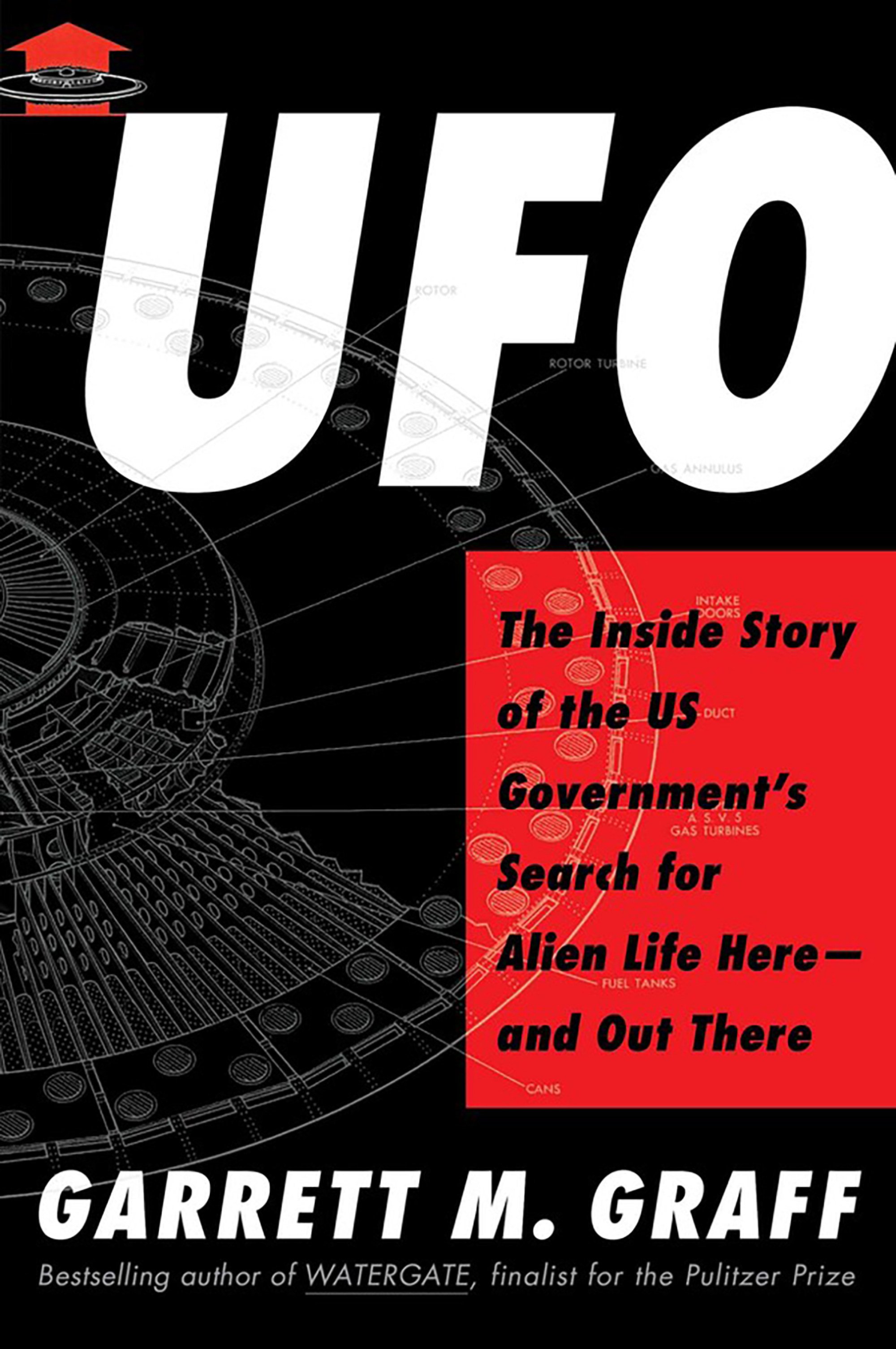
“But also, I think a lot of what’s controversial about him stems from peers who think Avi becomes either too flip with his science or crosses the line from sceptic to advocate.”
They say Loeb is outlandish and disingenuous, prone to sensational claims, more interested in being a celebrity than an astrophysicist – not to mention distracting and misleading, at a moment when the science community is defending its very foundations.
For his part, Loeb, at 61, rarely lets a criticism pass unattended.
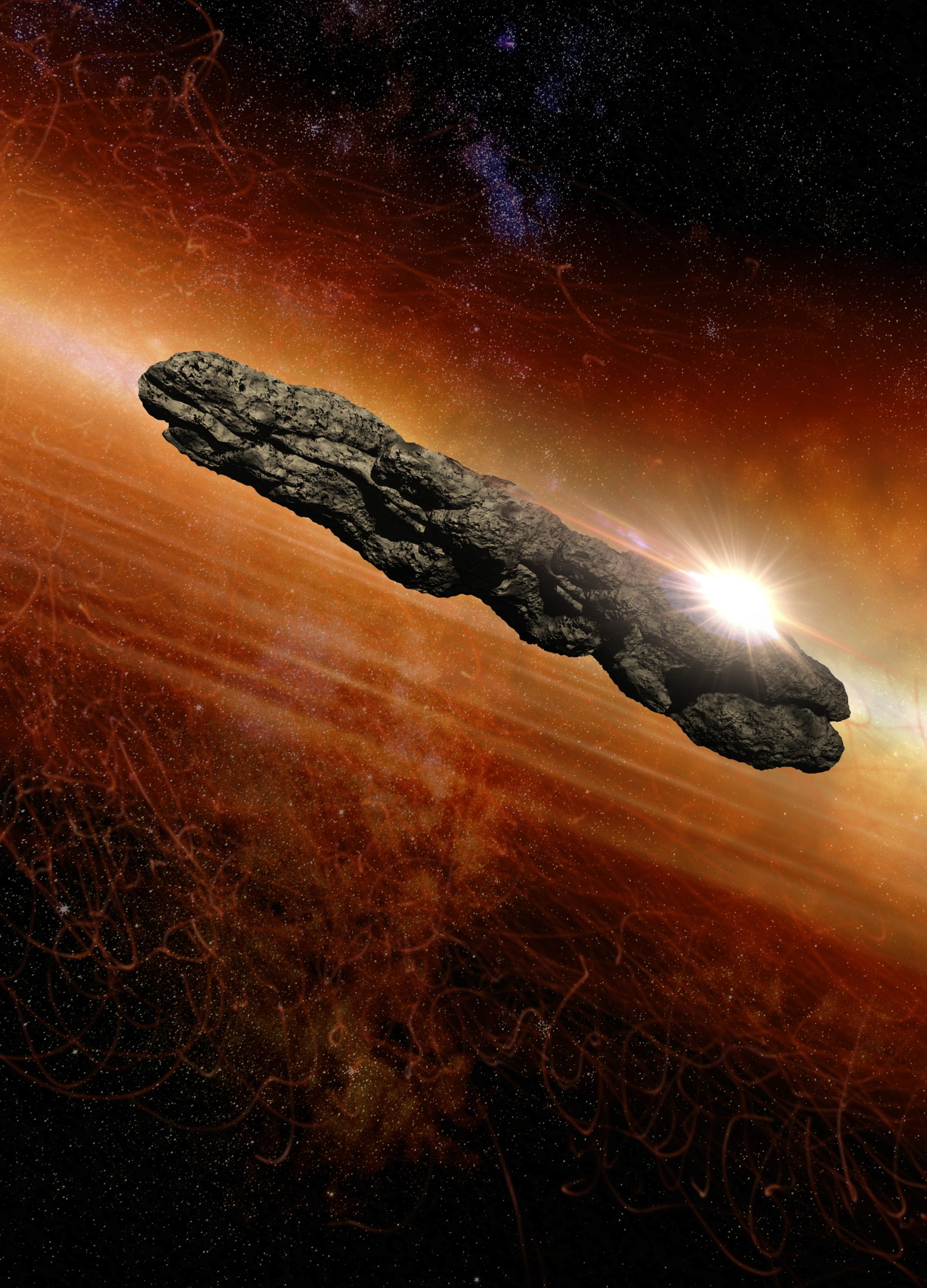
The search for alien life became his life’s mission, in a way, a decade ago, when, on January 8, 2014, a fireball crashed in the Pacific Ocean, off Papua New Guinea.
Several years later, after Loeb and Amir Siraj, a Harvard undergraduate, picked through the US government’s data on the speed and movement of the fireball, Loeb told interviewers it could be interstellar technology, piloted by artificial intelligence.
By then, though, he had already made headlines after a long, cigar-shaped object – since named Oumuamua, Hawaiian for “scout” – passed by Earth in 2017. Loeb theorised that, considering the trajectory and quickness of the object, it could be alien technology using a light sail, boosting speed with sunlight the way sailing boats rely on the wind.
Many more scientists argued it was naturally created, perhaps a rock or a comet.
Proof aliens exist? Interstellar object ‘the first sign of intelligent life’
Scientific disagreement tends to be polite. But Loeb, with little encouragement, complains of scientists who criticise him “without doing anything themselves”.
He complains of science driven by jealousy, egos and drive-by opinions. He says the public is more interested in discovering if there is life beyond Earth than, say, pouring multibillions into particle-physics research at facilities like Fermilab outside Chicago and the Large Hadron Collider in Switzerland.
He says, considering the billions and billions of planets in the universe, any search for intelligent life would be less speculative than discovering new particles.
“I am not a lifelong ufologist,” Graff told me later. “I am not even deeply schooled in pop culture about aliens. But while covering national security, I saw the topic move to the fore in such a way that it was a serious topic of serious conversation among serious people.
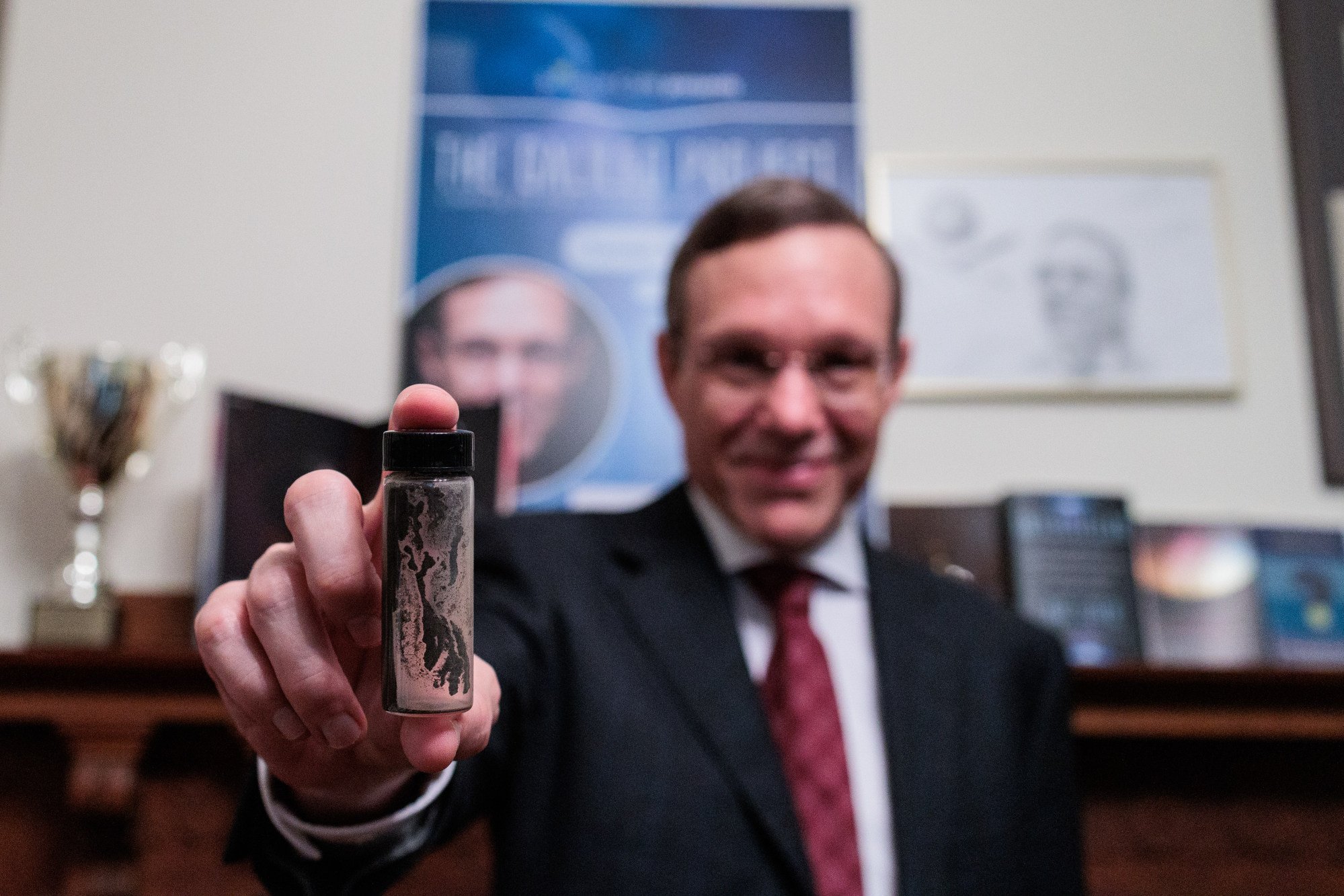
“When people like [former CIA director] John Brennan begin talking about it, you get interested.”
For much of the 20th century, the search for extraterrestrial life and UFOs – or rather, as the government rebranded them, UAPs, unidentified aerial phenomena – was the territory of fringe amateurs, Hollywood filmmakers and tabloids. To see a scholar as solidly mainstream and institutionally rooted as Loeb wade willingly into UFOs was rare.
But not unheard of. There’s also Frank Drake, another Chicago-born astronomer, who pioneered the foundation for Seti, the search for extraterrestrial intelligence. He formulated the Drake Equation, which aimed, theoretically, to calculate the likelihood of extraterrestrial life using the number of planets that could sustain life and advanced technology.
In his recent book Interstellar: The Search for Extraterrestrial Life and Our Future in the Stars, Loeb writes that he “can think of no scientific discovery that will more fundamentally transform our civilisation and brighten its prospects than the proof we are not the sole technologically capable civilisation in the universe”.
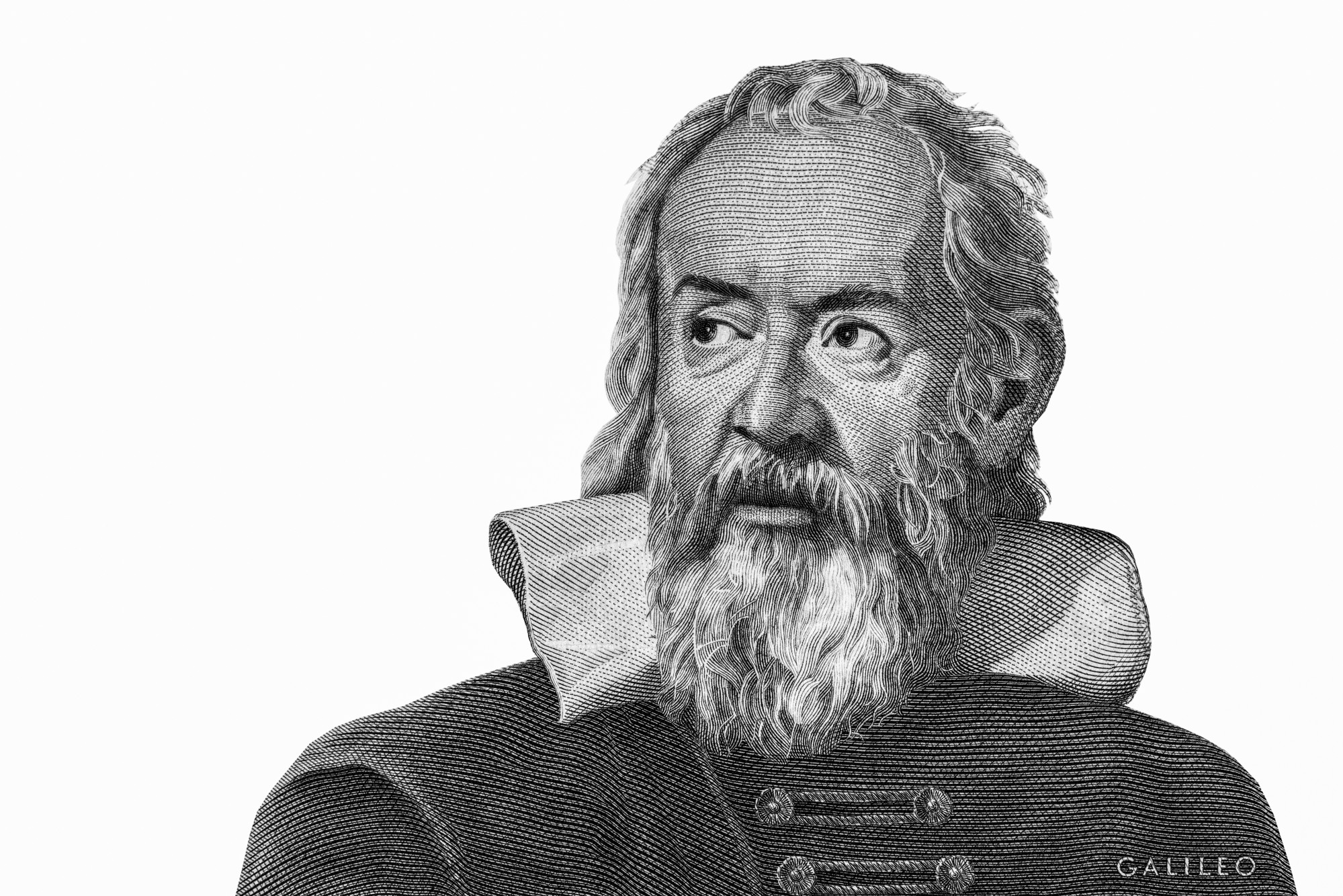
But he wants hard evidence. So, in 2021, he co-founded a research programme, using funds from private donors, to find and identify alien technology in the vicinity of Earth.
He wants to apply rigorous scientific method to locating and analysing objects, moving UFO research away from blurry video and iffy anecdotes.
It’s not for nothing that he named his Harvard-based initiative the Galileo Project.
Loeb reminds himself that lots of scientists were controversial in their own times. Galileo spent the last part of his life under house arrest for showing that the Earth revolves around the Sun, not the other way round.
After Loeb’s paper on Oumuamua came out in 2018, an Italian reporter asked if he felt like Galileo, pushing back against conventional wisdom.
“I told her that I didn’t,” Loeb says, “and yet, there is that common thread there among scientists who want to break the mould. I mean, it’s better now! I am not under house arrest!
“People want to feel like they are the centre of the universe. That was Galileo’s problem. For me, it’s showing that there might be someone else out there – it’s not about whether we are the physical centre of the universe than the intellectual centre.
“All I’m saying is, let’s look at evidence. Even Seti (radio towers) were about, more or less, waiting for a phone call. But what if nobody’s calling at the same time you are listening?”
That I became chair of Harvard astronomy is irrelevant. I am a farm boy. I maintain my innocence in the sense I refuse to be one of the adults in the room
Loeb is, in a sense, taking a very long view, placing himself in historic company. Maybe he’s hard to deal with, and maybe he’s not the kindest to those who disagree, and maybe he’s glib with pronouncements, but … do you want to play Inquisitor to his Galileo?
When asked if any search for extraterrestrial life requires an iconoclast, someone willing to upset, he replies: “We all die eventually. What is the point in pretending otherwise? The most powerful kings, all-powerful in their times – they also died. Like all of us.
“The fundamental fact about our existence is that we are not that important, and science wants to say it is important and so it needs to present a powerful image, and I’m saying, forget about that, the posterity and self-importance, and let’s just figure this out.”
Talking to him, it’s easy to see how well-meaning intentions get buried under rhetoric. It’s also easy to see why, despite his gravitas, some colleagues refuse to peer-review his papers, traditionally a major part of the process.
Alien hunters detect mystery radio signal from Earthlike planet
Loeb grew up on a chicken farm in Israel and found his way to science during compulsory military service with the Israeli Defense Force. He describes himself, even now, as “a curious farm boy”.
He says he was traumatised at family dinners. He would ask hard questions and get bad answers.
“The adults in the room pretended to know more than they knew. They could not admit when they didn’t know. I became a scientist to answer questions myself,” he says.
“That I became chair of Harvard astronomy is irrelevant. I am a farm boy. I maintain my innocence in the sense I refuse to be one of the adults in the room.”
He returns again and again to colleagues who “call me names” but never call for more funding for his research. He pictures the Galileo Project expanding into an international network of research stations and telescopes – but that demands funding, albeit a fraction of what’s spent on particle colliders, he says.
He’s raised US$5 million; the Netflix cameras that followed his expedition last year to find bits of the Papua New Guinea fireball could quicken imaginations and lead to more money.
China’s moon rock samples shed light on Earth meteor strikes: scientists
He faces “headwinds”, the astrophysicist says. But he could also be the right person for this job.
Graff describes the subject as a mix of science, spirituality, politics and national security, “requiring both believing and holding counterintuitive ideas in your head, all at once”.
We are at least 70 years on from Drake’s first work with Seti, he says, “yet we are not appreciably closer to solving this mystery. In fact, we are probably not going to have answers for several decades – or several human lifetimes.
“It could take centuries, and there is something to me that is beautiful about being part of a human effort that vast.”
An elderly man approaches Loeb, and says: “Avi, we have to find life before I die.”
Loeb smiles and says: “Well, I’m working on it.”

